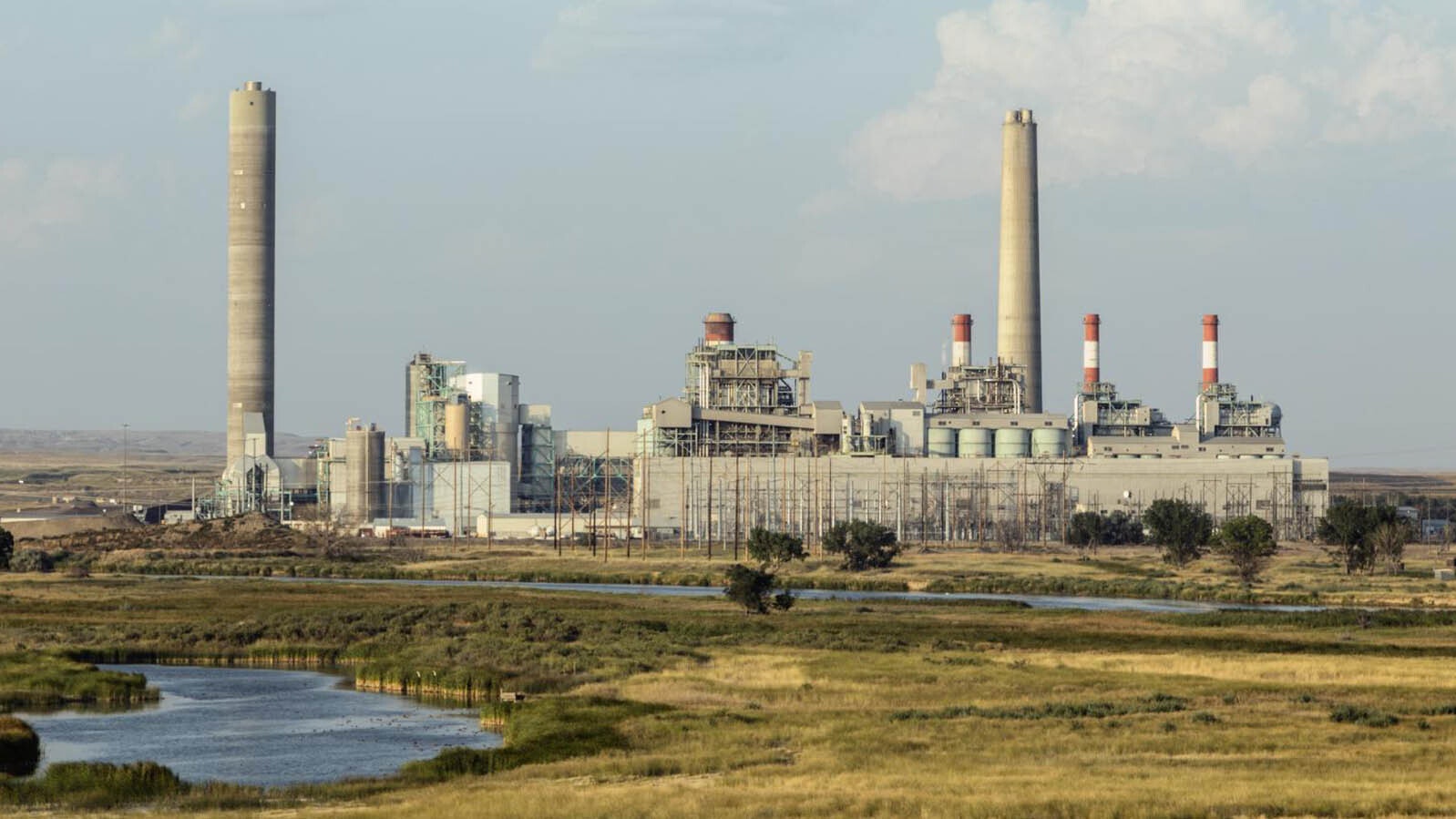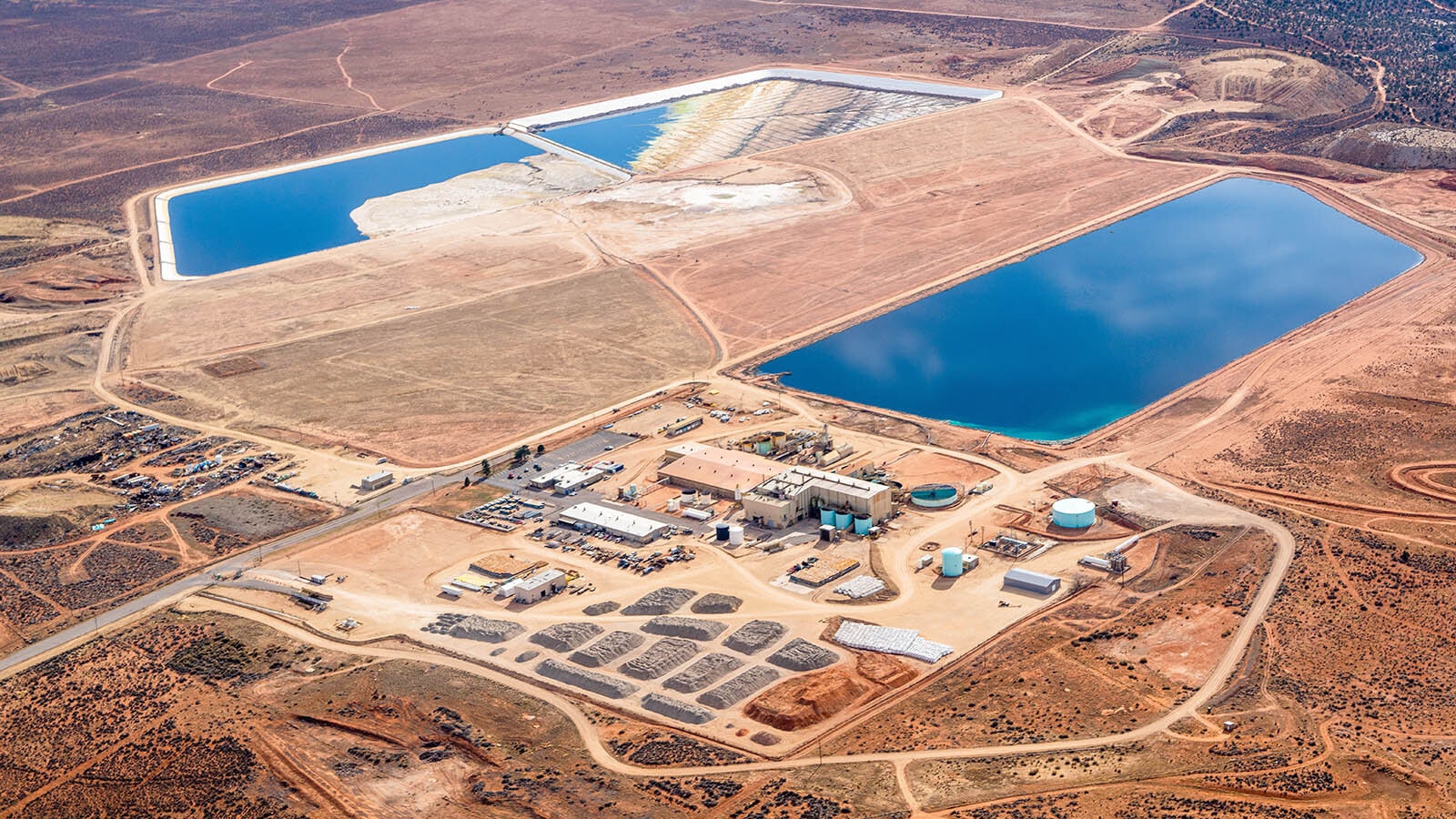Wyoming’s burgeoning rare earths minerals industry may have received an economic boost from a move by the federal government to hike tariffs on $18 billion in Chinese goods.
“It’ll be good for rare earths across the United States, and in Wyoming in particular, because it’ll level the playing field,” said Curtis Moore, senior vice president of Colorado-based Energy Fuels Resources (USA) Inc., which has mining interests stretching across the Cowboy State’s energy heartlands.
The tariffs, which were announced Tuesday by the United States Trade Representative’s office, will affect Chinese goods like aluminum, batteries, critical minerals, electric vehicles, medical products, semiconductors, ship-to-shore cranes, solar cells and steel.
The tariffs, which go into effect in 90 days, are in addition to retaining Trump-era tariffs on more than $300 billion in goods.
There are several rare earth minerals companies operating in Wyoming, and which are in various stages of launching major mining operations for critical elements and magnets in coming years.
“I’m not sure it’ll be an immediate stimulus, but it certainly will stimulate investment in the industry,” Moore said. “It’ll be critical to the economy, and critical to national security.”
While the strategic mineral uranium is not on the list that the Biden administration is protecting with tariffs, Energy Fuels is building a combined uranium and rare earths mineral company that is exploring possible acquisition opportunities to complement its sprawling operation.
Energy Fuels is preparing to ramp up its Nichols Ranch uranium mine near Kaycee, Wyoming, for production by 2025.
Beginning next year, the company’s Nichols Ranch and other uranium mines located in the Cowboy State and elsewhere could produce up to 2 million pounds of uranium per year, with the Wyoming mine representing “significant expansion potential.
Moore said that Energy Fuels processes rare earths at its Blanding, Utah, plant where it handles critical minerals from Florida and Georgia, and has lined up deposits to buy in Australia, Brazil and Africa.
Energy Fuels will consider buying rare earths from Wyoming once startups begin mining, Moore said.
The rare earth minerals bonanza is the result of consumers starved for magnet metals integral to the green transition to electric vehicles, wind turbines, consumer goods, robots and military drones, missiles and chips needed for sophisticated computing power.
The U.S. Air Force’s F-35 stealth fighter takes 850 pounds of rare earths to build, while the average electric vehicle (EV) takes about 1 kilogram of rare earth minerals, or 6,000 metric tons to produce 6 million EVs, according to figures provided by Moore.
Cutting Chinese Ties
The market has long been dominated by China.
“You don’t want to go to China to beg for rare earths,” said Moore, who said his company will consider buying the critical mineral from Wyoming to process at its Utah plant once some of the mining companies begin pulling the minerals out of the ground.
There are several rare earth minerals companies in Wyoming rushing to get their shovels in the ground first and move to commercial-scale production on their mining and processing operations – all of which will see benefits from the tariffs.
These include Lexington, Kentucky-based Ramaco Resources Inc., Rare Element Resources Ltd. and Australia-based American Rare Earths Ltd.
The Wyoming State Geological Survey (WSGS) won’t comment on the tariffs or economic potential of the rare earth minerals in the Cowboy State. However, Patty Webber, a minerals geologist with the WSGS in Laramie, said that the state’s deposits are the “subject of active exploration and interest.”
Webber said that the main deposits being explored for rare earths are located in Bear Lodge in northeastern Wyoming near Sundance, the Halleck Creek project — now called the Cowboy State project — near Wheatland, and the Brooks Mine, located in the Sheridan coal field.
American Rare Earths, which recently disclosed that it found substantially more rich deposits of rare earth minerals than originally envisioned in 2023, is moving through the state permitting process to advance its mining project near Wheatland.
“You can’t have materials that are integral to national security being beholden to geopolitical rivals,” Donald Swartz, CEO of American Rare Earths, told Cowboy State Daily. “You can certainly see that it’s the one thing that the two presidential candidates (Biden and Trump) are in lockstep on and who’s going to be tougher on China."
Swartz explained that the timing of the tariffs becoming effective for the kinds of rare earth minerals that American Rare Earths is digging up will allow his company “a little bit of time to stand up in this industry” and help it find parity with Chinese producers.
“This makes a lot of sense and I’m very encouraged to see it,” Swartz said of the tariffs.
He also cited another catalyst for his industry coming from a new loan program unveiled by the U.S. Department of Energy that helps with financing commercial-scale extraction.
“You’ve got to start somewhere. It’s just sort of the first step in the process,” said Swartz of the loan program and tariffs.
Wyoming Has World-Class Deposits
Besides American Rare Earths, competitor Ramaco has found what could become one of the largest finds of rare earth deposits in the U.S. — if not largest in the world.
Ramaco Resources Inc. has stated that its valuation estimate of $37 billion for its rare earth minerals discovered underground in Wyoming’s northeastern coal mining region could rise by billions of dollars as some of the critical minerals on the list of rare earths magnets have been banned by China for export to the United States.
Ramaco also runs a coal mining operation largely sprawled across central Appalachia.
A technical report that Ramaco is preparing on what minerals are in the ground near Ranchester, Wyoming, in the coal-rich Powder River Basin is expected to be completed later this year. That will give what Ramaco hopes is the best assessment yet of the value of the minerals, what kinds of minerals are in the ground, how deep they are and a first-time, back-of-the-envelope calculation on capital expenditures needed to dig it out.
Another player in Wyoming that could benefit from the tariffs is Rare Element Resources. That company is set to complete a rare earth minerals processing facility in Upton, Wyoming, this summer that is viewed as a first step toward putting the U.S. in a better competitive advantage with China, which has long dominated this sector.
Rare Earth’s demonstration-scale processing plant, which was unveiled in a groundbreaking ceremony last fall, is pioneering a new, more efficient method to extract rare earths.
Generally, the U.S. can’t develop a rare earths industrial base quick enough to get off its dependency on China.
In fact, the only significant rare earths operation in the U.S. is located just east of Las Vegas in the tiny mining community of Mountain Pass along the Nevada and California border.
At the moment, MP Materials Inc. in the Golden State may own one of the richest deposits in the world.
There’s been lots of saber-rattling with China over trade disputes, going to war over protecting Taiwan from an invasion and flexing of muscles between the U.S. and China over their military might.
All of this has the U.S. worried that China might cut off its rare earths pipeline to the U.S.
On Tuesday, James Litinsky, chairman and CEO of MP Materials, attended a White House event with President Joe Biden when the tariffs were announced on imports, a spokesman for the company said.
"This action will help level the playing field for domestic producers, giving U.S. industry the time it needs to scale and develop in a manner that aligns with America's vital national interests,” Litinsky said in a statement provided by the spokesman.
“In the long term, these measures will foster greater balance and resiliency across the global supply chain, ultimately benefiting producers and consumers worldwide,” he said. “By enhancing our domestic capabilities, we not only secure our economic future but also contribute to a more balanced and robust global market."
Pat Maio can be reached at pat@cowboystatedaily.com.





